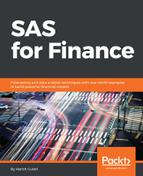Stock price prediction is based on the assumption that the efficient market hypothesis doesn't hold true. The efficient market hypothesis states that, at any point, the price of stock is already reflective of all information and rational expectations. Hence, no amount of insight generated from historical price trends or influencer variables will predict the stock price movement effectively. There is academic evidence to support the efficient market hypothesis, but also an acknowledgement that there are some individuals and institutions who have managed to beat the average returns of the stock market by using their judgment. However, it is worth noting that stock prices are highly reactive to news and events, and also seem to be driven by both rational and irrational expectations. Time series data does have a role to play in predicting stock prices but its application is changing. In predicting stock prices, the problem isn't the availability of data but rather about cancelling out the noise and finding the real reasons that a stock moves.
Time series is also helpful when making portfolio decisions. Unlike stock prices, which can change by the second, portfolio decisions are taken over a slightly longer time-frame, ranging from a day to years. Time series data can help us understand the elements of an investment portfolio, the expected returns in a number of years, and even the probable behavior of investors once they re-invest their money from a maturity fixed bond into available products in the market.
